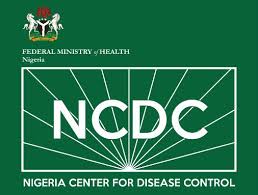The Nigeria Centre for Disease Control (NCDC) has revealed that Nigeria has been grappling with a significant surge in Lassa fever cases, with a staggering 857 confirmed cases and 156 fatalities reported across 28 states of the federation from January to 28 April.
This grim statistic underscores the urgent need for heightened measures to contain the outbreak and mitigate its impact on public health.
The latest Lassa fever situation report released by the NCDC highlights the severity of the situation, with a case fatality rate (CFR) of 18.2 per cent recorded during this period, surpassing the 17.0 per cent CFR documented in the same timeframe in 2023.
The report for week 17, spanning from 22-28 April, further reveals an escalation in the number of confirmed cases, rising from 11 in week 16 to 14.
Alarmingly, the states bearing the brunt of the outbreak include Ondo, Edo, and Bauchi, which collectively accounted for 63 per cent of all confirmed cases in 2024.
Additionally, 37 per cent of cases were reported from 25 other states, underscoring the widespread nature of the epidemic.
Despite concerted efforts to combat the spread of Lassa fever, the NCDC has cited several challenges hindering effective response strategies.
Late presentation of cases remains a critical issue, leading to an increase in the CFR. Moreover, poor health-seeking behavior persists due to the exorbitant cost of treatment and clinical management, exacerbating the crisis.
Environmental sanitation conditions and inadequate awareness in high-burden communities further compound the challenges faced by health authorities in curtailing the outbreak.
In light of these obstacles, the NCDC has activated the National Lassa fever multi-partner, multi-sectoral Incident Management System to coordinate response efforts at all levels through the Emergency Operations Centre (EOC).
Despite the dire circumstances, the NCDC reports that no health worker was affected during the reporting week. However, the predominant age group affected by Lassa fever remains individuals aged 21-30 years, underscoring the need for targeted interventions to safeguard vulnerable populations.
As Nigeria grapples with the escalating Lassa fever crisis, urgent action is imperative to stem the tide of infections, prevent further loss of life, and safeguard public health. Authorities, health professionals, and communities must collaborate closely to implement robust containment measures and raise awareness to mitigate the impact of this deadly outbreak.
Do you want to share a story with us? Do you want to advertise with us? Do you need publicity for a product, service, or event? Contact us on WhatsApp +2348183319097 Email: platformtimes@gmail.com
We are committed to impactful investigative journalism for human interest and social justice. Your donation will help us tell more stories. Kindly donate any amount HERE






